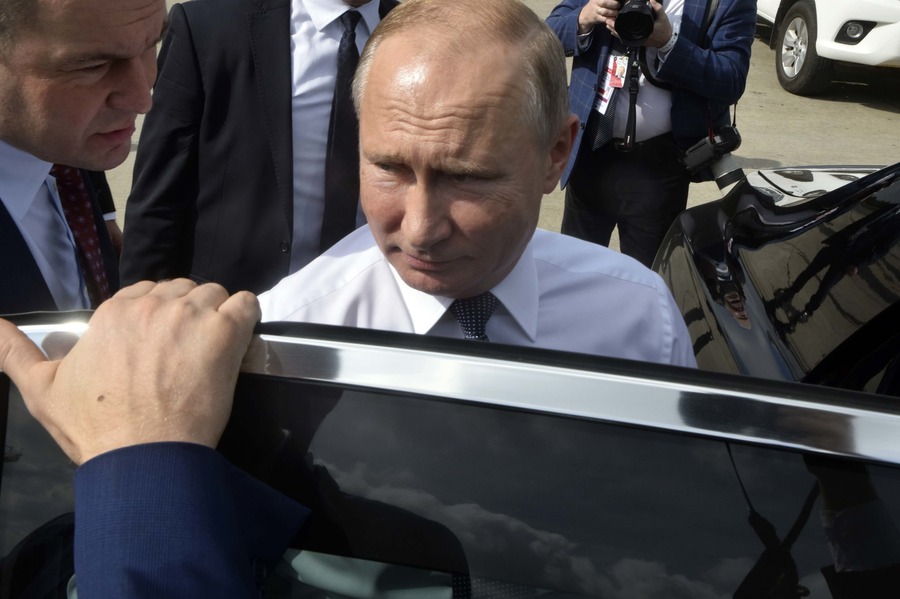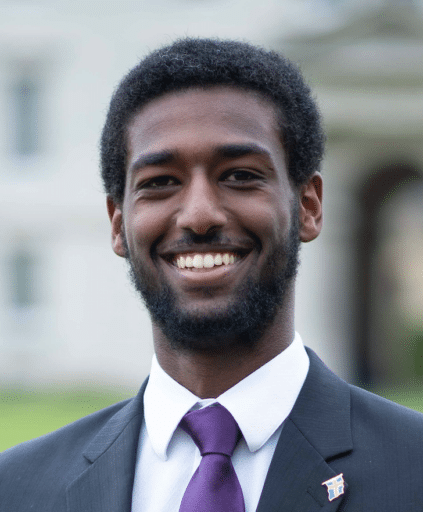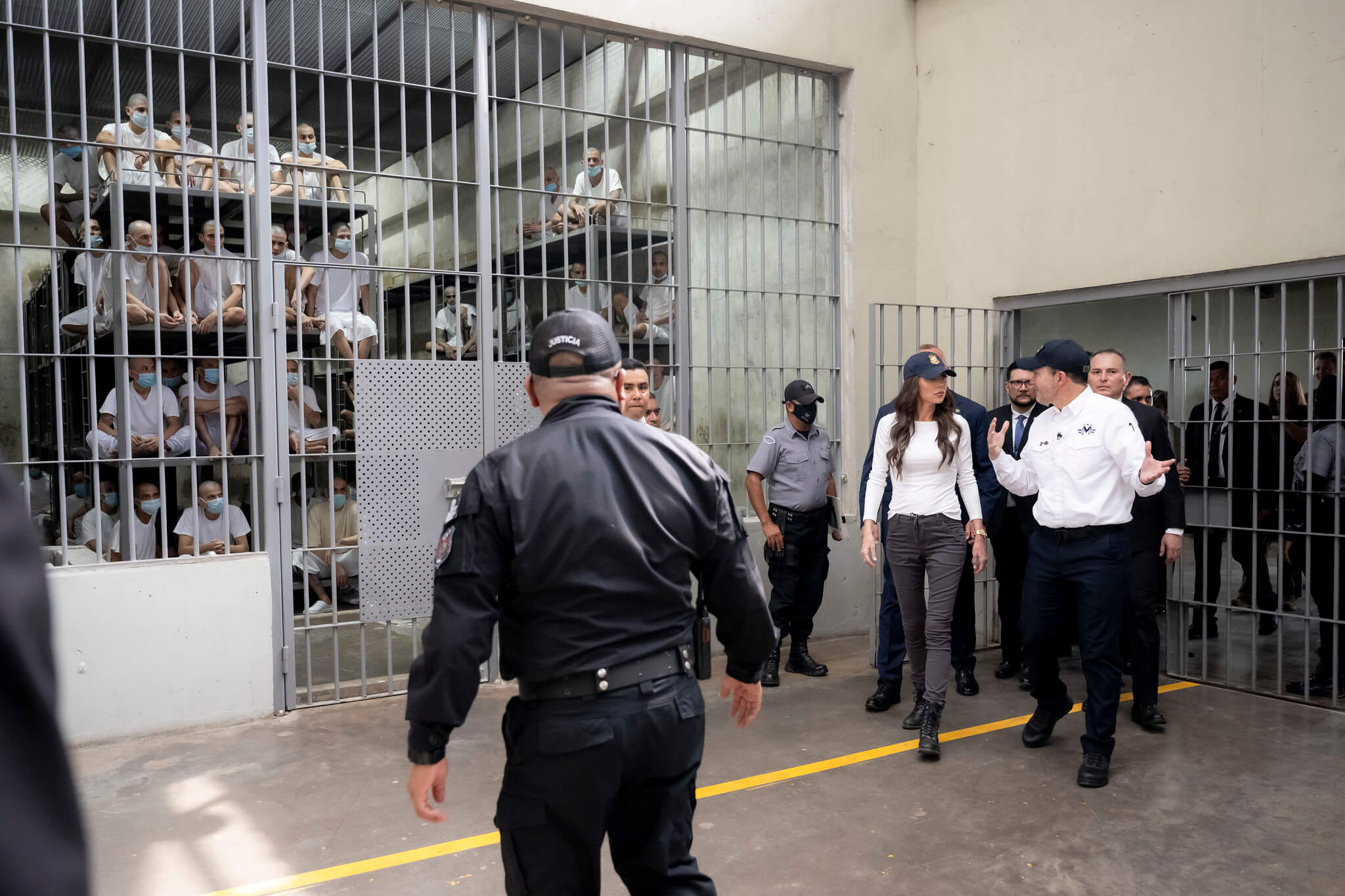ICC Arrest Warrants for Heads of State Are Not Risk Free

Published by The Lawfare Institute
in Cooperation With

On Sept. 3, Russian President Vladimir Putin visited Mongolia—despite the country’s obligation, as per its International Criminal Court (ICC) membership, to detain the leader given his outstanding arrest warrant. Although a chorus of Western voices called for Mongolian officials to detain Putin, the trip raises the recurring question of the efficacy and wisdom of issuing arrest warrants for heads of state or government. Such warrants risk colliding with the legitimate interests of states and their capacity to conduct foreign policy, at the same time eroding the principles that support accountability for national leaders.
Abstract Law Versus Pragmatic Foreign Policy
The Rome Statute of the ICC is explicit in holding all individuals to the same standard, regardless of their official capacity. According to Article 27, Section 1:
This Statute shall apply equally to all persons without any distinction based on official capacity. In particular, official capacity as a Head of State or Government, a member of a Government or parliament, an elected representative or a government official shall in no case exempt a person from criminal responsibility under this Statute, nor shall it, in and of itself, constitute a ground for reduction of sentence.
This is easier said than done. A head of state or government visiting a foreign country, especially in an official capacity, is engaging in an act of diplomacy. As it stands, the obligations of states toward foreign diplomats under the Vienna Convention on Diplomatic Relations and those obligations toward wanted heads of state or government (who appoint and direct diplomats themselves) pursuant to the Rome Statute produces a tension. On the one hand, immunity for foreign officials is seen as a vital cornerstone of international relations; on the other hand, their superiors (themselves engaging in international diplomacy) may lack immunity.
The Vienna Convention notes in its opening preamble both “that an international convention on diplomatic intercourse, privileges and immunities would contribute to the development of friendly relations among nations” and that “that the purpose of such privileges and immunities is not to benefit individuals but to ensure the efficient performance of the functions of diplomatic missions as representing States.” Since the ICC lacks its own independent enforcement mechanism, instead relying on member states to carry out arrest warrants, it effectively leaves the duty with governments of friendly states in which wanted heads of state or government are likely to visit.
Expecting a third party to carry out such an arrest is not realistic and produces undue burden on that party. In July 2023, in the lead-up to the BRICS (Brazil, Russia, India, China, and South Africa) summit hosted in Johannesburg, South African President Cyril Ramaphosa stated in an affidavit that arresting Putin, who was invited to the summit, would be tantamount to declaring war. All governments have a primary responsibility to ensure the security and stability of their own states.
Antagonizing a foreign government can be detrimental to a country’s well-being. In Mongolia, Russia is responsible for providing 95 percent of petroleum products (equivalent to 35 percent of total imports). According to CalTech’s Jet Propulsion Laboratory, “Due to its location deep in the interior of Asia, and its high elevation, Ulaanbaatar is the coldest national capital in the world.” When faced with the choice of providing heating for its citizens or arresting one individual, the choice is rather obvious. Beyond that, it is not clear how an arrest warrant could even be implemented. Even if Putin had been arrested, Mongolia is landlocked between non-ICC members Russia and China and therefore physically unable to transfer Putin to the Hague. In other words, the Rome Statute obliged Mongolia to do something beyond its strategic and practical capabilities.
Even for countries in which ties with Moscow are not paramount, willingness to prioritize an ICC arrest warrant over pragmatic foreign relations is not realistic. In August, Putin was invited (along with leaders of all countries with which the Latin American nation maintains diplomatic relations) to the Oct. 1 inauguration of Claudia Sheinbaum as Mexico’s president. In response to Ukraine’s request that Mexico arrest Putin should the Russian leader attend, then-President Andrés Manuel López Obrador stated succinctly, “We can’t do that, it’s none of our business.”
Even assuming that all states comply with the legal obligation to arrest a wanted head of state, the best that can be realistically expected is that the figure will simply not travel to ICC member states. This results in the effective preservation of his or her immunity—just in a fewer number of countries.
Ramifications for Non-cooperation
In the case of a country like Mongolia, which refuses to execute the arrest warrant, both formal and informal options remain for the ICC. Formally, the court may request that the UN Security Council take action, though this could be vetoed by a permanent member, which is particularly likely should it be targeting the leader of one of them. Informally, the good offices of the president of the Assembly of States Parties could try “to raise awareness of the issue and to promote full cooperation while that would still be possible,” though this would be tantamount to nonpunitive measures.
The court’s approach to noncompliance by states parties has varied. This can be observed by the court’s approach to states that hosted Sudan’s then-president, Omar al-Bashir. The ICC had issued two arrest warrants for al-Bashir (March 2009 and July 2010) along with a warrant for the arrest of Sudan’s minister for national defense, Abdel Raheem Muhammad Hussein (March 2012). At various times in 2013 and 2014, the two men visited ICC states parties Chad, the Central African Republic, and the Democratic Republic of the Congo (DRC). A report by the Bureau of the Assembly of States Parties on noncompliance states that in November 2013 “the Chamber took note of the explanations provided by the authorities of Chad and the CAR for the respective visit and found that the then-present circumstances did not warrant referral of the matter to the Assembly and/or the Security Council.” By contrast, in April 2014, the chamber determined “that the DRC failed to cooperate with the Court by deliberately refusing to arrest and surrender Mr. Al-Bashir, thus preventing the Court from exercising its functions and powers under the Statute,” which was followed by a referral to both the UN Security Council and the Assembly of States Parties. At the same time, however, “[w]ith regard to Mr. Al-Bashir’s visit to Chad in March 2014 no decision pursuant to Article 87(7) has been issued by the Court.”
Even when finding the DRC in breach of its obligations under the Rome Statute, the pretrial chamber wrote that it “acknowledges the difficulties the DRC was facing.” The Congolese argued that they had found themselves in a difficult position; the pretrial chamber responded that they “should have consulted or notified the Court in accordance with article 97 of the Statute and rule 195 of the Rules of the existence of a problem related to article 98(1) of the Statute which prevented it from discharging its obligations as a State Party to the Statute prior to or during the visit of Omar Al Bashir and before his departure.” In other words, alternative avenues—rather than overtly ignoring the court—should have been pursued.
In its findings, the court did not explicitly rule out the fact that complexities exist due to political realities when it wrote that “the Court is the sole authority to decide whether or not the immunities generally attached to Omar Al Bashir as a sitting Head of State were applicable in this particular case.” In fact, the court went even further, acknowledging that “[i]t follows that when the exercise of jurisdiction by the Court entails the prosecution of a Head of State of a non-State Party, the question of personal immunities might validly arise.”
Should actions be taken against noncompliance on an increasingly frequent basis, there is a possibility that states will be faced with choosing between ICC membership and their own bilateral diplomatic relations, in which case they may opt to simply withdraw from the Rome Statute. This further weakens the court’s ability to prosecute non-heads of state or government and restricts its reach.
Potential Future Options
As it stands, no comprehensive, consistent global framework exists for ICC warrant enforcement. For example, Ukraine ratified the Rome Statute in August 2024—but with the reservation that “it shall not, for a period of seven years after the entry into force of the Rome Statute, recognize the jurisdiction of the ICC over its nationals for crimes defined by Article 8 of the Rome Statute (war crimes),” presumably protecting officials all the way up the chain of command.
To avoid this hodgepodge system and members of the court being put in an awkward position, some form of immunity is needed. One possible solution would be blanket immunity for national leaders, whether heads of state or heads of government, who are not ICC members. The Brazilian government has been pushing for immunity for leaders of states that are not party to treaties like the Rome Statute, arguing that “[t]he immunity of State officials from foreign criminal jurisdiction is crucial to ensure the adequate performance of their functions.”
Another possibility is a mechanism whereby individual countries would be authorized to offer exemptions on a case-by-case basis. Following a summit on the Russia-Ukraine conflict featuring largely pro-Kiev countries held in Switzerland, Swiss President Viola Amherd indicated that her country would be open to allowing Putin to participate in a second summit despite the ICC arrest warrant. Amherd told journalists that “[i]f the presence of (Putin) is necessary for holding the conference, then an exception can be made. In case of the negotiations on peace in Ukraine with Russia this can be such an exception.” This was later echoed by Foreign Minister Ignazio Cassis, who said that “[i]t is possible according to our laws. Of course, we have to do it together with the ICC, but as a host country, we can make an exception to this.”
A third option would be to authorize arrest warrants only for alleged crimes committed in the territory of an ICC member. While the latter is the case for Putin in light of Ukraine’s ratification, it can be viewed as a retroactive, opportunistic adoption of international law.
Risks and Benefits
These options are not cost free. They risk contributing to a growing fragmentation of international legal systems. The creation of an exemption may also reinforce views that the law, whether domestic or international, produces a two-tiered justice system, especially if soldiers and civil servants can still be prosecuted for acts authorized or initiated by their superiors.
However, both of these concerns already exist and are unlikely to be exacerbated by immunity for heads of state or government. The creation of ad hoc tribunals, such as in the former Yugoslavia, or blatantly self-interested and selective exemptions, like the U.S.’s infamous American Service-Members’ Protection Act (nicknamed the Hague Invasion Act, which also covers U.S. allies), are greater barriers than immunity for a handful of leaders who may be wanted at any given time. Furthermore, the ICC already suffers reputationally in the Global South due to its disproportionate focus on African rulers.
Another criticism of immunity for heads of state or government is that it would create harmful incentives. According to Kenneth Roth, the former executive director of Human Rights Watch, “a policy of refusing to prosecute sitting heads of state could easily become an incentive for leaders facing criminal charges to do whatever it takes to remain in office, including committing more of the mass atrocities that the ICC is supposed to be helping to prevent.” However, it is as plausible, if not in fact likely, that the risk of prosecution would encourage leaders to entrench themselves if the alternative is a jail cell.
The Rome Statute itself allows for some flexibility in pursuing prosecution. Article 16 states that “[n]o investigation or prosecution may be commenced or proceeded with under this Statute for a period of 12 months after the Security Council, in a resolution adopted under Chapter VII of the Charter of the United Nations, has requested the Court to that effect,” a request that can be renewed (presumably without a limit). Additionally, according to Article 53, Section 2, Subsection C, a prosecutor can refrain from moving forward with a case if “[a] prosecution is not in the interests of justice, taking into account all the circumstances, including the gravity of the crime, [and] the interests of victims.” This leaves a rather broad space for maneuvering. If it is widely accepted that it is beneficial to civilian populations, for example, to not pursue prosecution, then it follows that criminal prosecution is not necessarily always of paramount importance because of pragmatic, geopolitical considerations.
Both of these caveats imply that pragmatic assessments of the real world ought to carry some weight as opposed to an excessively narrow legalistic approach. The question then is to what extent this flexibility should be codified. As it stands, the conspicuous preclusions of Western leaders from arrest warrants has created the justified impression that prosecutions of heads of state or government are tantamount to victor’s justice. The most notable cases, though not at the ICC, have been the trials of figures such as Japan’s Hideki Tojo, Yugoslavia’s Slobodan Milosevic, and Iraq’s Saddam Hussein, all marred with their own problems since national leaders are usually put on trial only following their defeat in war, thereby reinforcing the perception of such legal proceedings as victor’s justice.
***
Governing consists of making choices and assessing trade-offs. Expectating ICC member states to arrest an incumbent head of state or government forces members to decide between their legal commitments, which may yield minimal benefits if not even harmful outcomes, and their strategic self-interests based on pragmatic assessments of their own geopolitical realities. With most—if not all—governments prioritizing the latter over the former, a lack of immunity will hinder the ability of countries to effectively conduct foreign affairs or negatively impact the ICC’s reach—or potentially both. Providing immunity for heads of states or governments that are not party to the Rome Statute resolves some of these existing tensions, but the solution ultimately depends on what form this immunity takes.
Editor's note: An earlier version of this article mistakenly stated that the prosecutor already issued an arrest warrant in the International Criminal Court investigation in Palestine.





